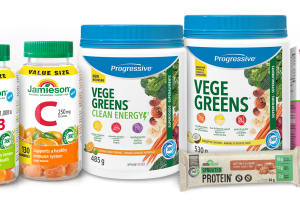
Immunity Across a Lifespan
By Olivia Rose ND
It’s the season of kids heading back to school while adults move back into the busyness of work life. While regular routines are being re-established, you may also be contemplating what you can do to support your immune health. On its own, your immune system does an incredible job of providing daily protection from most bacterial and viral infections. However, there are certain lifestyle changes, dietary patterns, herbs and vitamins which may amplify your immune system’s efforts by both helping protect against and shorten the duration of common upper respiratory tract infections.
Lifestyle Modifications
Before turning to any herbs or supplements, it is important that individuals have the general foundation for a healthy immune system.
Sleep is a key component of immune health. During sleep, cytokines, which are proteins used to help the body fight off infection, are produced.1 When released, these proteins signal an immune cascade of cells needed to help fight off infection.1 Without proper sleep, less cytokines are produced and there is an increased risk of infection.1
Exercise can be both helpful and a hinderance for a healthy immune response. Regular, moderate exercise can be protective and enhance immune function.2 Moderate exercise includes going for a brisk walk or jog, yoga, weight lifting, hiking, swimming or playing a sport. However, prolonged periods of intense exercise can actually depress immunity, especially without adequate recovery time.3
Nutrition
A healthy diet can make a positive impact on immune function. When looking to optimize immunity, you should try to limit the intake of large amounts of refined sugar and simple carbohydrates which rapidly turn to sugar when absorbed. Simple carbohydrates include foods such as bagels, cereals and white breads. Spikes in blood sugar levels can hinder the immune response, increasing the susceptibility to infection in the hours after exposure to pathogenic viruses and bacteria.4
Foods rich in antioxidants such as broccoli, spinach, carrots, avocados, beets, squash and sweet potato can also aid in the immune response.5 Antioxidants activate cells involved in the immune cascade, prevent damage to immune cells and protect against the harmful effect of excess production of reactive oxygen species.5
Vitamin C is a well-known antioxidant and nutrient which plays an important role in immune function. A diet rich in fruits and vegetables can supply most individuals with just the right amount needed to maintain immune function. However, many people in North America do not have an adequate intake of fruits and vegetables in their diet to reach optimal levels of vitamin C.6 A vitamin C supplement may be helpful in these cases.
Foods rich in vitamin D or fortified with vitamin D such as salmon, red meat, orange juice and plant and dairy based milks can play a significant role in immune health. Vitamin D is involved in the immune response and people who are deficient in vitamin D are at a greater risk for infections.7 In Canada, almost 30% of the population has deficient levels of vitamin D, making it one of the most common nutrient deficiencies.8 Therefore, if you are not eating a significant amount of foods rich in vitamin D, if you wear sunscreen or have minimal exposure to the sun you may benefit from supplementing with vitamin D. It is best to have this nutrient tested regularly due to the prevalence of deficiency and the vital role it plays in the body.
Supplementation
During times of increased or prolonged stress, the immune response can be strengthened with certain herbs and supplements. Here are some of our favourites.
Echinacea is one of the most well-known immune-enhancing supplements. Also known as the purple coneflower, research has shown that it stimulates the immune system to more effectively fight off infection by increasing the number of white blood cells in the body.9 Jamieson Echinacea – 1,200 mg is a high potency, organic formula of pure Echinacea purpurea. Echinacea has been used traditionally in herbal medicine to fight off upper respiratory tract infections, relieve cold symptoms, and shorten the duration of colds and flu.10
Zinc is another mineral which is needed for proper immune function. It is crucial for the development and function of immune cells.11
Mushrooms are gaining popularity as important supplements in part, due to their beta-glucan content. Beta-glucans are special polysaccharides found in cell walls of mushrooms and yeasts such as Saccharomyces cerevisiae. Glucans are part of a group of biologically active natural molecules with immune-stimulating function.12
When immune supporting compounds are combined into a single daily supplement such as Progressive® Immuno Daily Support you can increase customer compliance due to the ease of dosing. The powerhouse nutrients beta-glucan, vitamin C, and zinc work together in this simple supplement to help maintain immune function
Although infections cannot always be controlled or prevented, with certain lifestyle modifications, a healthy diet and a combination of immune-modulating supplements you can feel more at ease as you head into one of the busiest times of the year.
References
- Irwin MR. Sleep and inflammation: partners in sickness and in health. Nature Reviews Immunology. 2019 Nov;19(11):702-15.
- Simpson RJ, Kunz H, Agha N, Graff R. Exercise and the regulation of immune functions. Progress in molecular biology and translational science. 2015 Jan 1;135:355-80.
- Gleeson M. Effects of exercise on immune function. Sports Science Exchange. 2015;28(151):1-6.
- Jafar N, Edriss H, Nugent K. The effect of short-term hyperglycemia on the innate immune system. The American journal of the medical sciences. 2016 Feb 1;351(2):201-11.
- A Puertollano M, Puertollano E, Alvarez de Cienfuegos G, A de Pablo M. Dietary antioxidants: immunity and host defense. Current topics in medicinal chemistry. 2011 Jul 1;11(14):1752-66.
- https://www150.statcan.gc.ca/n1/pub/82-625-x/2019001/article/00004-eng.htm
- Vanherwegen AS, Gysemans C, Mathieu C. Regulation of immune function by vitamin D and its use in diseases of immunity. Endocrinology and Metabolism Clinics. 2017 Dec 1;46(4):1061-94.
- https://www150.statcan.gc.ca/n1/pub/82-624-x/2013001/article/11727-eng.htm
- Karsch‐Völk M, Barrett B, Kiefer D, Bauer R, Ardjomand‐Woelkart K, Linde K. Echinacea for preventing and treating the common cold. Cochrane Database of Systematic Reviews. 2014(2).
- Mount Sinai. Echinacea-Health Library. Accessed Sept. 13, 2021 at: https://www.mountsinai.org/health-library/herb/echinacea
- Prasad AS. Zinc in human health: effect of zinc on immune cells. Mol Med. 2008;14(5-6):353-357. doi:10.2119/2008-00033.Prasad
- Akramienė D, Kondrotas A, Didžiapetrienė J, Kėvelaitis E. Effects of ß-glucans on the immune system. Medicina. 2007 Aug;43(8):597.
Next post



